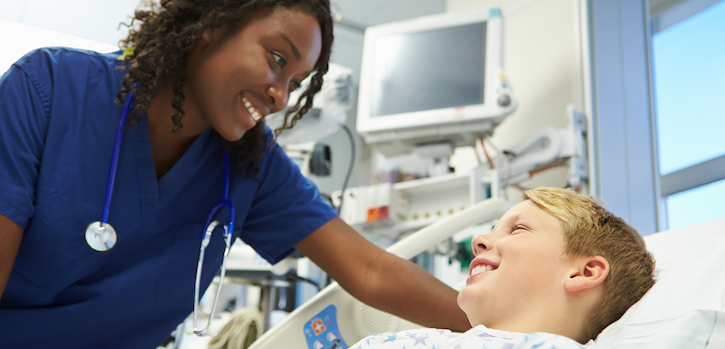Google and care.ai Launch AI-Powered Platform to Monitor Rooms
The platform will alert clinicians about what is happening in a room at any time.

Photo/Thumb have been modified. Courtesy of Monkey Business - stock.adobe.com.
Google and care.ai yesterday announced a partnership to power autonomous monitoring in healthcare to prevent avoidable deaths and injuries for patients.
The partnership will feature Google’s Coral Edge TPU and care.ai’s artificial intelligence (AI)-powered platform to transform any room into a “Self Aware Room,” care.ai said. Google's Coral Edge TPU meets care.ai's need for the scale, accuracy and performance necessary to launch such a technology, Chakri Toleti, founder and CEO of care.ai, said in a statement to Inside Digital Health™. Care.ai bidirectional interfaces with electronic health records, he added.
The companies will combine care.ai’s autonomous monitoring with Google’s edge computing framework to help address demanding challenges in healthcare, Billy Rutledge, director of Coral.
Care.ai’s platform sends context-aware, intelligent notifications to staff to alert and inform them about what is happening in any room at any time.
“Imagine if we brought the power of AI with autonomous monitoring to healthcare environments — we could prevent injuries, diseases, protocol breaches and ultimately fatalities; while improving staff efficiency,” Toleti said. “By utilizing Google’s Edge TPU, care.ai has done just that — we have built an AI sensor to monitor, predict and infer behaviors using billions of data points in real time.”
Care.ai saw an opportunity to use technology and the concept of Self Aware rooms to transform healthcare, Toleti said. The technology maximizes the predictive power to nanoseconds to improve operational readiness and clinical quality, care.ai claimed. The AI actively learns and evolves and includes staff monitoring algorithms to identify strengths and weaknesses in workflows.
Healthcare errors are a leading cause of death and injury, including avoidable falls, pressure ulcers and infectious disease. Care.ai’s platform has the potential to improve clinical and operational processes to establish a new standard of care, the company said.
The technology includes sensors which send an alert if a patient is getting out of bed or trying to stand up (fall prevention). The sensors also send an alert to staff if a patient has not shifted in their bed for more than two hours (pressure ulcers), Toleti said. What's more, the platform monitors hand sanitization and cuts back on manual tracking to increase staff efficiency.
“We believe we are on the cusp of an amazing revolution for AI in healthcare and are proud to partner with care.ai to witness it becoming a reality,” Rutledge said.
Get the best insights in digital health directly to your inbox.
Related